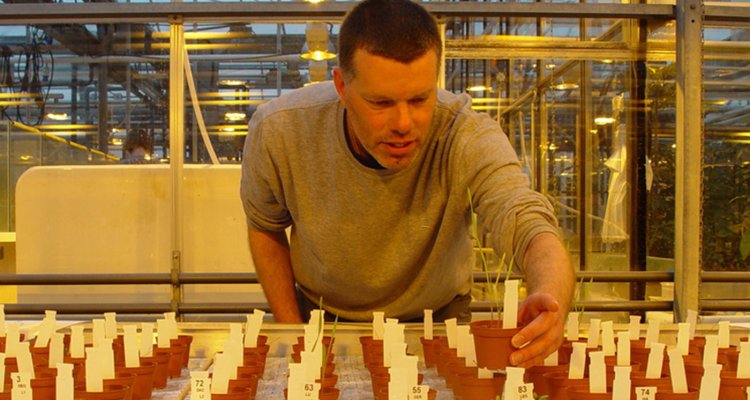
Meet our course leader, Wieger Wamelink
A pioneering researcher exploring the intersection of space, ecology, and sustainable agriculture, Wieger is passionate about science, innovation, and the future of food production beyond Earth. Discover his background, groundbreaking research, and vision for the future!
From Earth to Mars
Growing up in Winterswijk, Wieger's fascination with nature began early, sparked by field excursions with his grandfather. Although he initially dreamed of becoming an astronomer, his path led him to study ecology and plant breeding at Wageningen University. After earning his PhD in ecology, Wieger merged his expertise with his passion for space and science fiction, launching the groundbreaking Food For Mars & Moon project, now part of B.A.S.E..
Innovating for Earth and Beyond
Wieger's research focuses on growing crops in simulated Martian and lunar soil, addressing key questions like how water behaves in these extreme conditions. His experiments have advanced over the years and paved the way for sustainable food production in space. The implications go beyond space agriculture—his work also contributes to restoring arid and desertified lands on Earth. Why grow plants on Mars? In the future, as humans settle there for extended periods, it will be more practical (and healthier) to grow food rather than bring it all with them.
Research that Earned the Science Award
Wieger has been experimenting with Mars and Moon soil simulants provided by NASA since 2013. Through his work, he successfully grew crops like tomatoes, potatoes, green beans, peas, and rocket, proving they are safe to eat with no harmful levels of heavy metals. His innovative research earned the prestigious Science Award from the children's programme Het Klokhuis in 2016.
Course Leader of the Space Farming Summer School
As a course leader, Wieger guides participants through the urgent challenges of space-based food production. With humanity aiming for a permanent lunar presence within the next 5 to 10 years, sustainable food solutions are crucial. The Space Farming Summer School delves into closed-loop agricultural ecosystems, essential for survival in space, and equally valuable for addressing resource scarcity and sustainability on Earth.
A Book to His Name: Stikstofweb
Wieger Wamelink also tackles pressing environmental issues closer to home. His book Stikstofweb (The Nitrogen Web) is a vital resource for understanding the nitrogen crisis, which divides society. Through accessible chapters, he explains the science behind the nitrogen crisis, its effects on plants, the relationship between nitrogen, climate change, and drought, and why biodiversity is crucial for humans. His book also offers insights on how to free ourselves from the nitrogen web gradually.
Why Wageningen University & Research?
At WUR, expertise in plant science, soil ecology, food safety, and agritech converge, making it the ideal place for cutting-edge Space Farming research. With state-of-the-art facilities and a vibrant green campus, WUR provides an inspiring environment to push the boundaries of science.
Join the Journey
Participants in the Space Farming Summer School don't just learn theory—they design and execute their own experiments, gaining hands-on experience with pioneering research. The programme offers a unique opportunity to work alongside leading experts, explore innovative agricultural solutions, and help shape a future where humans can grow food beyond Earth.